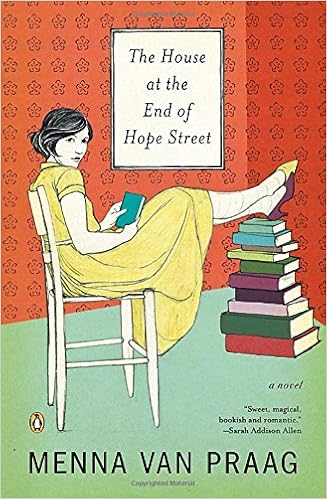"The eyes of others are our prisons; their thoughts our cages."Alba Ashby is (was?) a PhD student whose world is falling apart. She ends up on the doorstep of a house on Hope Street that she's never noticed before, and is invited in by the mysterious Peggy, who tells her that -- like every other woman who's come to the house at a moment of desperation -- Alba can stay for 99 nights, and the house (and its current and former inhabitants) will help her to change her life.
Alba frowns. "Really?"
"Dismiss that warning at your peril," Dorothy says. "Literature is strewn with the wreckage of writers who have minded the opinions of others." [p. 176]
Alba has plenty of problems to resolve. She's the child of an adulterous affair, has never met her father, and is estranged from the rest of her family; her PhD supervisor, on whom Alba has a crush, has plagiarised Alba's notes; and Carmen and Greer, the other residents of the house, seem intent on drawing her into their own lives, even though Alba would vastly prefer to be left alone to read. (I empathised.) Also, the pictures on the walls of the house are talking to her ...
This was a sweet and charming novel with a magical-realist flavour. The underlying philosophy (do what you love; be true to yourself; romantic love conquers all) is occasionally cloying, but within the frame of the story it works nicely: this is not a gritty documentary, but a book about achieving happiness.
The author, in an afterword, notes that despite having lived in Cambridge for thirty-five years, she didn't know there was an actual Hope Street. Me, I used to walk down it most days. I've never noticed that house, either.

No comments:
Post a Comment